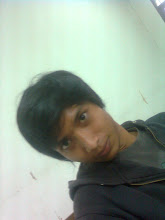Contohnya : kata benda pen dapat dihitung one, two, atau three pens.
For example : computer -two computers, table-four tables, student –many students, box –three boxes.
Contoh kata benda yang dapat dihitung:
1. cat,
2. dog,
3. man,
4. baby,
5. person,
6. animal,
7. bottle,
8. box,
9. coin,
10. cup,
11. plate,
12. table, chair, bag, glass, book, house, etc.
a. I have to brothers, Jhon and Michael.
b. I've got a problem with the bicycle.
c. Do you like these photos?
d. I'm going out for five minutes.
- My cat is playing.
- My cats are hungry.
Countable nouns yang singular dapat didahului dengan kata this, that, every, each, either, dan neither, sedangkan yang plural biasanya didahului kata these, those, some, any, enough, dan zero article. Lihatlah contoh sebelumnya.
Jika countable nouns berbentuk singular, maka penggunaan kata seperti a, an, the, my, this, dsb. harus digunakan.
- I want an orange. (tidak bisa dikatakan I want orange.)
- Where is my bottle? (tidak bisa dikatakan Where is bottle?)
Tetapi, jika countable nouns berbentuk plural, maka kata benda itu dapat berdiri sendiri:
- I like oranges.
- Bottles can break.
benda yang tidak dapat dihitung.
Contohnya kata benda water. Kata benda tersebut tidak bisa dikatakan a water atau two water,
tetapi lebih tepat digunakan bersama dengan kata benda lainnya yang dapat dihitung,
misalnya a glass of water atau two glass of water.
Contoh kata benda yang tidak dapat dihitung: sand, air, rice, sugar, cheese, tea, coffee, advice, assistance, fun, money, music, art, love, etc.
- Can I have some water?
- Shall we sit on the grass?
- The money is much better in my new job.
- I love art.
- Would you like some tea?
Perhatikan tentang penggunaan Much dan Many pada countable dan uncountable nouns di bawah ini.
Much dan many yang sama-sama berarti banyak, biasa digunakan untuk menyatakan jumlah pada countable dan uncountable nouns.
Contoh:
- How many years have you lived in Tanjung Karang?
- He didn’t have much fun at the Pondok Indah Mall.
- I haven't got many pens.
- I haven't got much friedrice.
- This news is very important.
- Your luggage looks heavy.
Indefinite article a, an tidak umum dipakai pada uncountable nouns.
- a piece of news (bukan a news)
- a bottle of water (bukan a water)
- a grain of rice (bukan a rice)
Jadi, harus diberi kata keterangan di depannya. Perhatikan contoh lainnya berikut ini.
- There has been a lot of research into the causes of this disease.
- He gave me a great deal of advice before my interview.
- They've got a lot of furniture.
- Can you give me some information about uncountable nouns?
Uncountable nouns juga sering digunakan tanpa article (zero article)
- Poetry is beautiful.
- Sugar is sweet.
- Experience is the best teacher.
Uncountable nouns dapat didahului dengan kata some, any, enough, this, that, dan much. Dan karena bukan countable nouns maka tidak dapat didahului dengan kata these, those, every, each, either, and neither. Lihat lagi catatan dan contoh di atas.
- There are new wines being introduced every day.
- The waters of the Atlantic are much warmer this time of year.
- The Dutch are famous for their cheeses
Key words for Countable and Uncountable Nouns | |
For Countable Nouns | many number few fewer |
For Uncountable Nouns | much amount little less |
sumber : http://catatanbahasainggris.blogspot.com
http://ocw.gunadarma.ac.id/course/computer-science-and-information/computer-system-s1/bahasa- inggris-1/everyday-uses-computers/view












0 komentar:
Posting Komentar